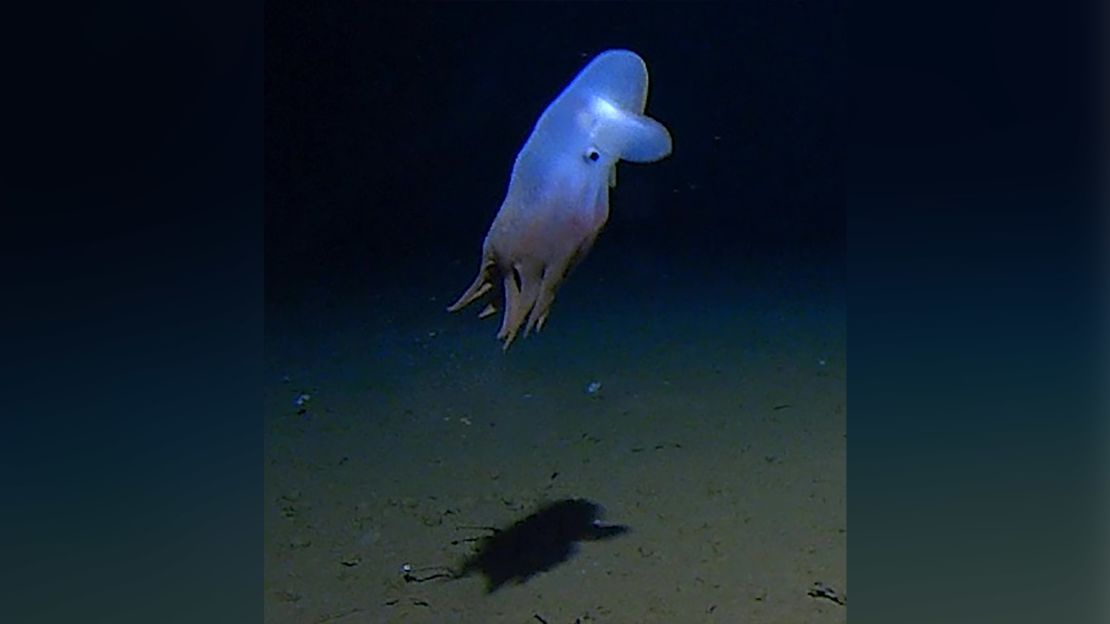The deepest known sighting of an octopus has been captured on film, more than a mile deeper than the previous reliable sighting.
The observations of the creature, captured at almost 4.3 miles down in the Indian Ocean using lander machines – autonomous camera systems that are released from a ship and sink to the bottom of the ocean – are thought to be the deepest octopus sightings ever filmed.
Researchers believe the creature is likely to be a new species of Grimpoteuthis, or “Dumbo octopus,” a genus of deep-sea umbrella octopuses named for their fins, which resemble the ears of Disney’s cartoon elephant.

Over the course of a year and a half, as part of the Five Deeps Expedition, scientists visited the world’s deepest places.
Marine ecologist Alan Jamieson, who led the team that made the discovery, told CNN that having completed more than 100 dives, the team had an idea of what types of wildlife, including fish and crustaceans, they would observe on the sea bed – but they were shocked when they spotted the octopus.
During the dive last April, he said, “as usual, we filmed much of the same stuff, but then suddenly in the middle of a dive about close to 6,000 meters this Dumbo octopus just flies by the camera.”
“Then two days later, we’re doing it slightly deeper, at 7,000 meters, and the camera’s only on the sea floor for four minutes. And this thing just comes out of the darkness, which just crawled up to the cameras – another Dumbo octopus,” Jamieson, CEO of deep sea exploration company Armatus Oceanic, told CNN.
Experts observed the animals – which were 17 and 14 inches long, at 5,760 and 6,957 meters deep (3.6 to 4.3 miles deep) in the ocean – as they “hopped” from place to place on the seabed, and reported the new findings in the science journal Marine Biology.
Jamieson said the new depth extended the deepest reliable record of the octopus, giving us an insight into what the creatures get up to deep on the ocean floor.
“It shows that are still surprises to be made with big animals. Quite often you hear about new species and they tend to be tiny worms and small crustaceans,” he said, adding: “This is a great big octopus.”
Jamieson told CNN that he hoped the discovery would challenge people’s perceptions of deep sea creatures, which are often thought of as scary and strange monsters.
“I like the fact that it challenges people’s perceptions about what deep sea animals look like,” he said.
“This is just a cute little octopus doing what octopuses do. There’s nothing particularly weird about it. So hopefully, people might feel a greater attachment to the really deep waters as opposed to the scary, horrible, weird environment that it’s made out to be,” he said.





